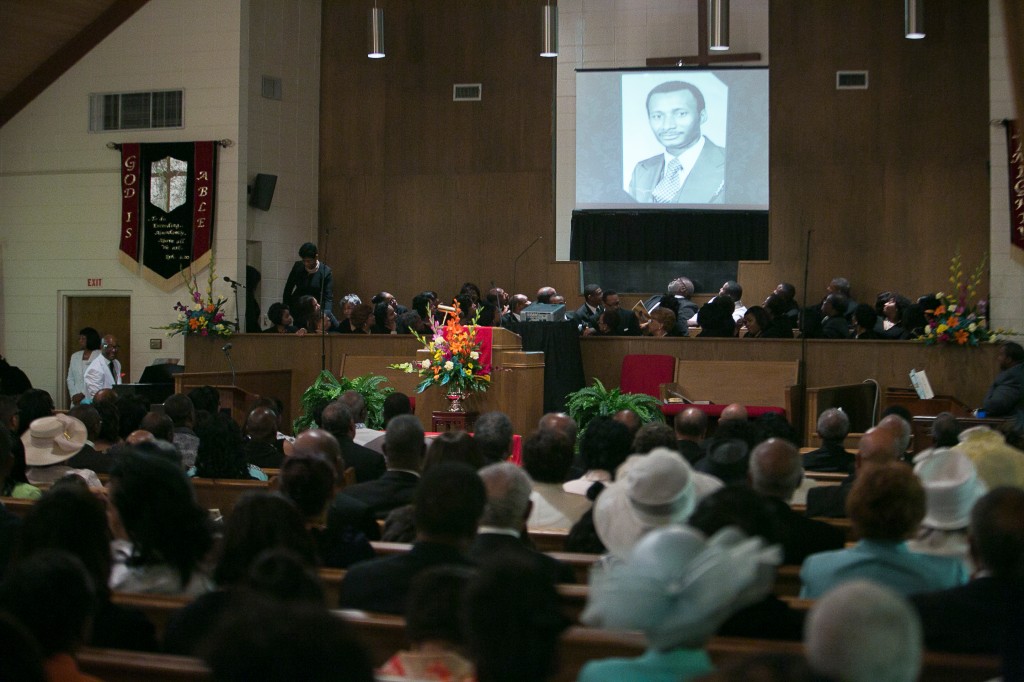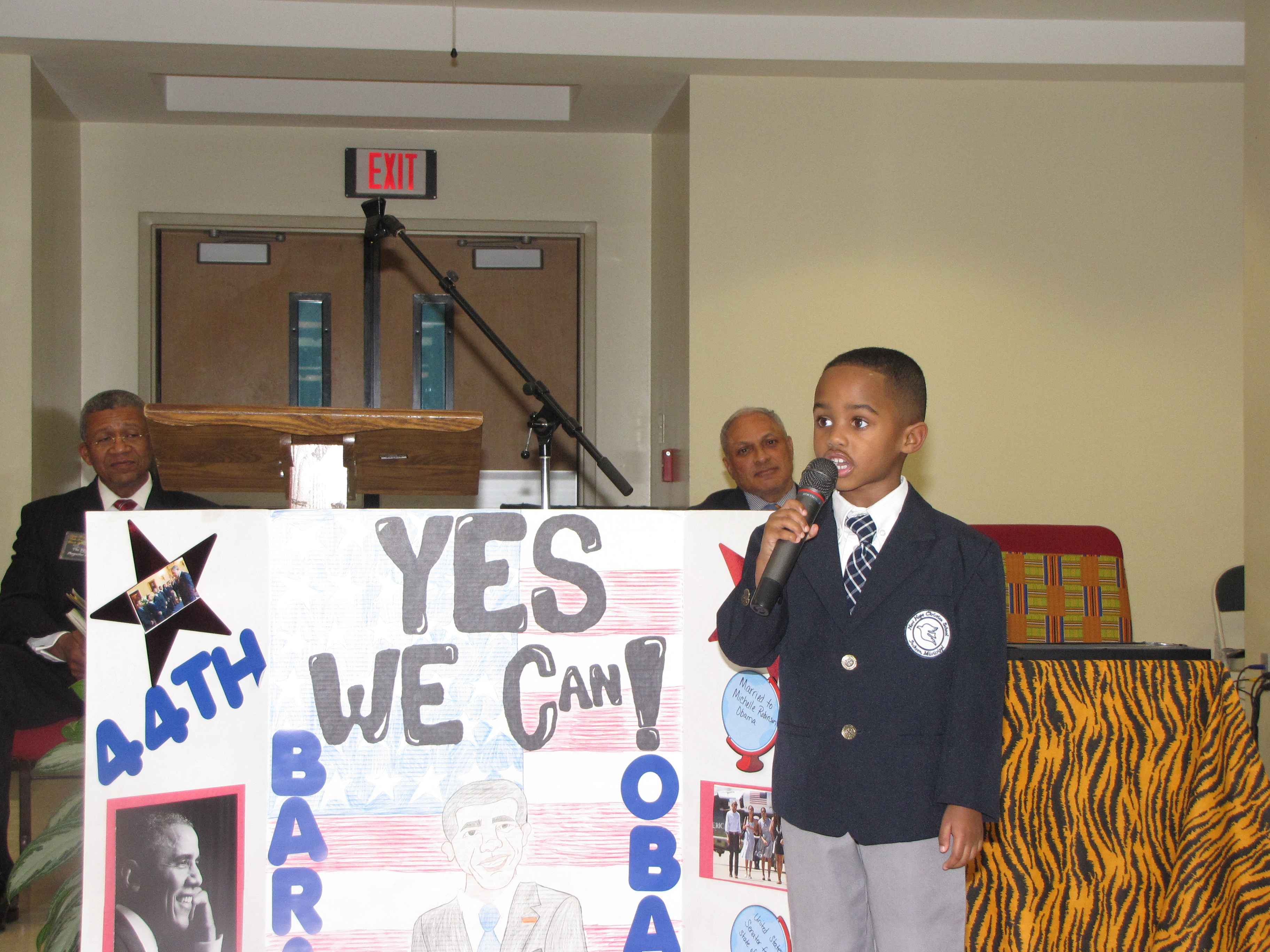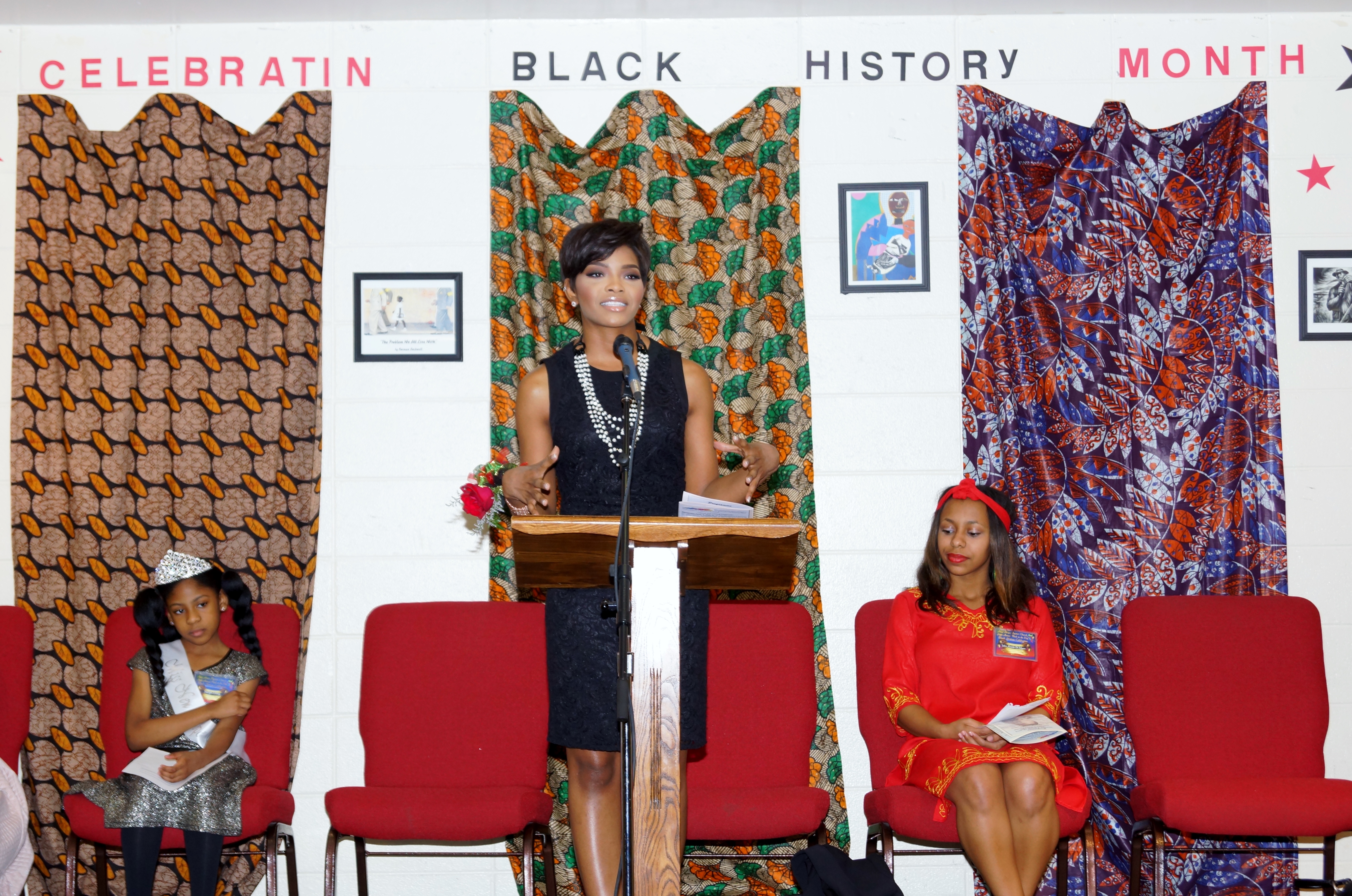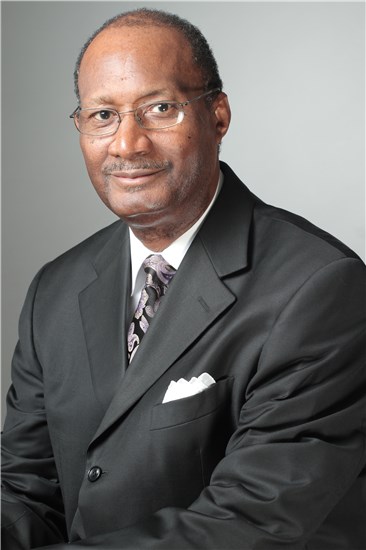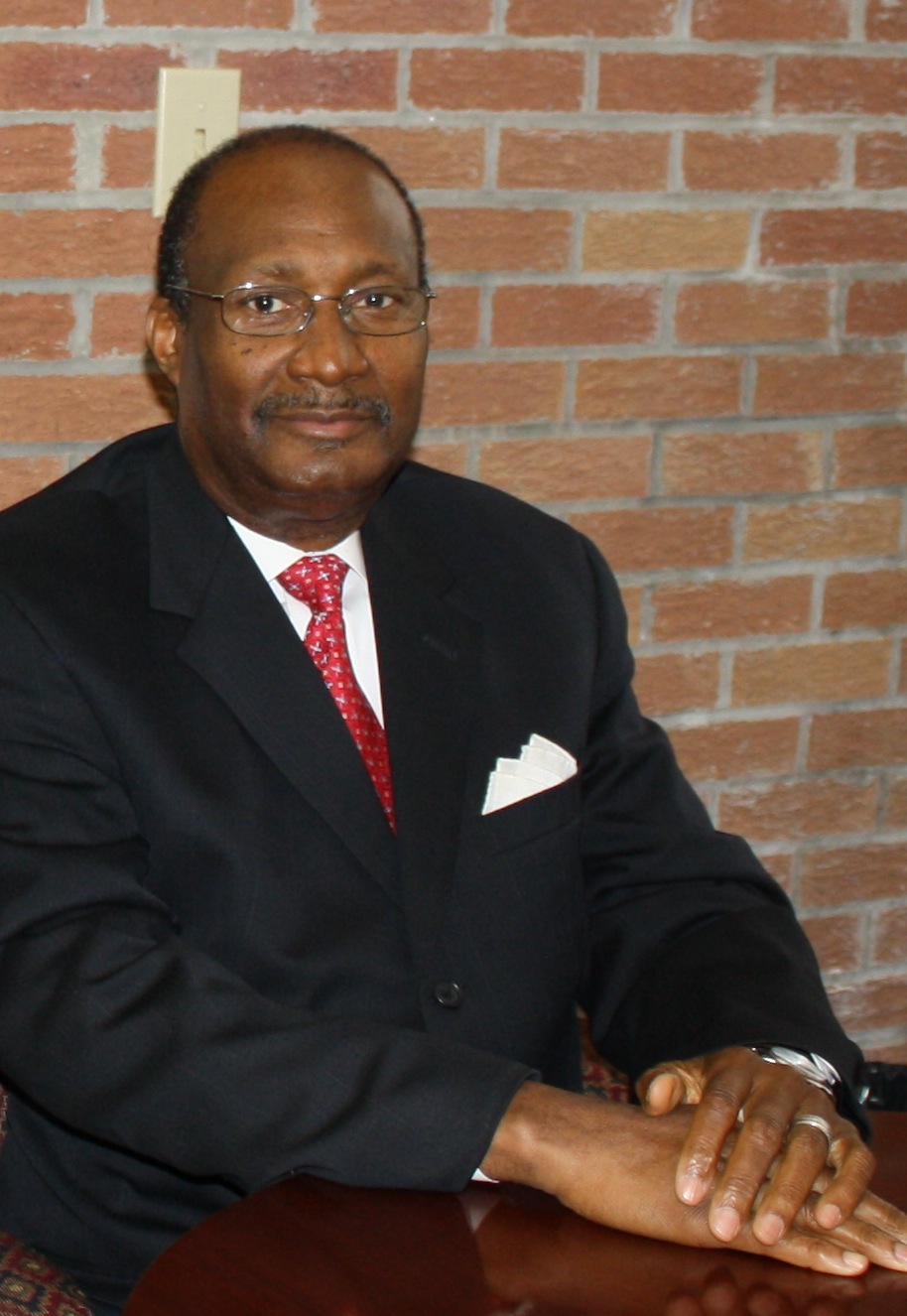
Interview with Pastor Jerry Young of 100-year-old New Hope Church
By Ayesha K. Mustafaa
Editor
and Jackie Hampton
Publisher
New Hope Baptist Church is celebrating its 100th year, 1913-2013, with reflection on its centennial legacy, including its seven pastors over the 100 years, a testament to the church’s cohesive congregation and leadership.
“Standing on His Promises to Realize Our Godly Potential” was the celebratory theme of the culminating event held at the Jackson Convention Complex. Several other programs were sprinkled throughout 2013, including the 33rd anniversary of Dr. Jerry Young as the church’s seventh pastor and the groundbreaking for the new church complex.
There is the legacy of consistent and sustained growth, from meeting in the home of Ida Taylor on Whitfield Mills Road in Jackson with seven members to its future site (in the next 18 months) at the former Jackson College of Ministry complex at 1555 Beasley Road. The current church building at 5202 Watkins Drive will facilitate the expansion of the New Hope Christian Elementary School.
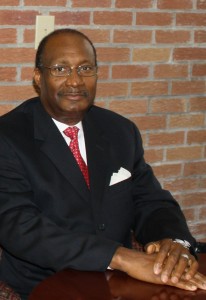
Young is hard to catch sitting still. Not only is he active in his city and state but also as a prominent leader in the National Baptist Convention USA, Inc., now serving as its vice president-at-large.
This Thanksgiving weekend, The Mississippi Link recognizes the church legacy, Pastor Young, First Lady Helen Young, the New Hope church family and its future. The following interview with Young will shed some light on the mission and vision of New Hope Baptist Church.
MS Link: Congratulations on the 100th year anniversary of New Hope Baptist Church. So what has sustained the church to reach such a milestone?
YOUNG: It is essentially what will sustain any church. I believe without exception that that which allows any church to exist for any duration of time – particularly when you start talking about a hundred years – and to be successful in ministry is to be growing and involved in what Christ has called us to do.
There are several things involved, but first of all is a serious faith commitment to the Lord Jesus Christ. It has to be a commitment essentially to his purpose: what is it that Christ has called the church to be and do. This commitment to His purpose allows the church to be able to count on His presence.
To count on His presence means that He (Christ) is going to be involved in that. It allows you basically to claim His promises, and His promises become ours.
There are a lot of times when churches commit themselves to something other than His promise and purpose. Sometimes we major in minor things and minor in major things. I am convinced, as I have said to our church over and over again, that Christ’s last command ought not be the church’s least concern.
Our commitment is to make sure that we do three things in particular. Number one, make sure we always highly exalt Christ; be Christ-centered all the way. The second thing is to make sure that we educate the saints. You’ve got to teach and you’ve got to train.
So thirdly, if you exalt Christ, educate and train the saints, that allows you to be in a much better position to evangelize sinners.
MS Link: Pastor or reverend ….
YOUNG: I prefer pastor….
MS Link: For this church over 100 years to have just seven pastors shows a close knit, cohesive group of leaders. So how do you see the link from one pastor to the other; how are they connected?
Young: At this stage in my life, I am absolutely convinced that when it comes to the life of the church and what we do, God does not deal in accidents. He deals with appointments. So my answer is very short: It’s providential. God brings people to the place for that particular season. I recognize in a real sense that whatever I accomplish, it happens for two reasons. One is because of God’s providence and secondly because of the people who came before. You build on that foundation.
Emmett Burns was the pastor I followed here. Burns did some good things at New Hope Baptist Church. Many of those good things laid a tremendous foundation for me. And I have been blessed and privileged to be able to build on what he did.
He, of course, built on what Pastor George Hunte had done. And that is how it happens. God does it. And that link is the reflection of that providence and its purpose and why God brought a pastor at a particular time.
MS Link: You have different ministries listed; there’s the ministry to the children and ministry to the prison services. Which is more important, what is the priority?
YOUNG: When you start talking about various kinds of ministries, there are two things you have to acknowledge and agree that they occur in scripture, when it comes to Christ and ministering. That is why I mentioned evangelism first. Evangelism is absolutely number one, in terms of what the Bible teaches. The church has to be involved in evangelism.
The second aspect of Christ’s ministry is social responsibility. The church cannot, in my opinion, be a New Testament church if that church does not involve itself in evangelism and social responsibility.
To be socially responsible ultimately means that we’ve got to be concerned not only about what the church does to share the good news of the Gospel in terms of preaching and teaching, but the church has to demonstrate the Gospel, not just declare the Gospel.
All of the various ministries you see in our church grow out of that commitment to demonstrate the Gospel.
MS Link: Over these 100 years, were your predecessors involved in the Civil Rights Movement?
YOUNG: Emmett Burns was for sure. He epitomized the Civil Rights Movement. Emmett was field secretary for the NAACP while he was pastor at New Hope Church. There was a tremendous consciousness about that.
That is why I talk about social responsibility. The Bible says that Christ went about teaching, preaching and healing. Then the Bible says that he went about doing many other good works. That is social responsibility.
I am convinced that part of what is missing to some extent in the church today is that people who preach justification seem to deny that the God of our justification is also the God who is concerned about justice.
MS Link: Your school has a long history and great significance, which is evident in the edifice itself. It draws attention to something is going on here. How did a school of this magnitude evolve for the church? Are these children from the congregation; are they children from the community? How did you grow the school?
YOUNG: Actually, we started with the preschool, and here is what my philosophy was and is. I have always wanted to be involved in Christian education. I have always been convinced that if you are going to change behavior, you have to change what you believe. Belief precedes behavior.
If you are going to change my actions, you have to change my attitude. If you are going to change my attitude, you have to change what I have been taught. For me, teaching is paramount. So I decided I wanted to have a Christian school.
So I asked, “How do we start this school?” Then I thought the best way to do this is to start with a preschool, and then grow from the preschool. That is what we did. In the first few years, probably 90 percent of the children who came to our school were from the community – not members of our church.
We began with the 3-year-old program and they went into the 4-year-old program. From the 4-year-old program, they went into the 5-year-old program. And then from kindergarten, they went to first grade. We built the school one year at a time.
MS Link: We were here for the announcement of the first SEEK program or Summer Engineering Experiences for Kids with 300 black girls to be exposed to science, technology, engineering and math (STEM) at New Hope Christian School. How did you secure that program?
YOUNG: Again, I am a great believer in providence. Things don’t just happen; God is behind the scene. Providentially, Bro. Carl Mack’s (the young man who gave birth to that program) mother is a member of our church, Sis. Rose Mack. There’s the link.
Mack had a family relationship with our church through his mother and grew up with members of our church. He went to his mom and asked, “Where can I do this?” Her response was, “My pastor is big on education. I guarantee you, he will make this happen.”
MS Link: At the SEEK press conference, Mack said they would return every year.
YOUNG: We are trying to work through that now. One of the things I said to him and the Superintendent of Education, Dr. Gray, was that I would like to see this program expanded where the Jackson Public School (JPS) system partners with us in this process. Dr. Gray is amenable to making this a partnership so that JPS is involved in this and we can actually have more children involved.
Someone asked me, “This is a church and you are involved in engineering and science. Where does that come from?” I said, it’s very simple. As a Christian, I do not see a conflict between faith and reason. Faith is the completion of reason.
My personal theology and philosophy is very simple: all truths come from God; wherever it is He is the author of all truths. Reason is absolutely essential, and I seek to be a very reasonable person who understands that faith completes reason. I do not believe by the stretch of anybody’s imagination that God is glorified by ignorance. That may be a tough way of saying it and hope no one is offended by it.
I have been preaching a sequence of sermons from Philippians 3 where the Apostle Paul talks about the greatest desire of his life; he talks about all the things he has accomplished in life and gained by him. He gives a list in Philippians 3 – his religion, his heritage, his family, everything in terms of human productivity.
Apostle Paul was extraordinarily intelligent; he spoke 14 languages fluently. He was one of the greatest intellects of humankind. But then he says, “But when I met Christ, I counted all the other things I had acquired in life as basically useless. I counted it useless for the privilege of getting to know him.” He says, “… that I may know him.”
Here is the key: there are two basic words in that text that we translate as “know.” One means “to know about….” – I know Labron James; I’ve watched him play basketball and I’ve read about him. But I don’t know him the way I know my wife, my children, my grandkids. The word Paul uses for “getting to know him” is in the way that you know your family, intimate knowledge.
The key becomes “the better we know Him, the better we can worship Him.” The more experiences I have with Him, the greater I can worship and give praise and give gratitude. So knowledge becomes extraordinarily important. I don’t worship that which I do not know.
And when folk in my church respond to the word of God, they do so out of a sense of knowledge. There is a difference between authentic emotions and emotionalism. Emotionalism is a problem, when people only respond out of that. When people are emotional because of their relationship with God and knowledge of Him it’s purely different.
MS Link: Thinking of Paul versus Saul, and then looking at our youth today, a great many people say, “That’s a lost cause,” although we know there were people historically who evolved from one level to another. So how do you look at these young guys on the street who are in and out of jail, carrying guns, with offensive behavior?
YOUNG: There is a verse in Matthew, Chapter 9, in particular, where the Bible said Christ saw the multitude as sheep that did not have a Shepherd. That’s how I see them, as young people who truly desperately need a Shepherd.
Every person I see has potential, no doubt about it, because the image of God is there. When we begin to see young people in light of their potential as opposed to being a problem, I think the church is moving in the right direction.
MS Link: On the walls, we see your building expansion project. What is the time frame for it to be completed, and will the whole church operation move to the new facility at 1555 Beasley Road?
YOUNG: They are doing the site work even as we speak and God willing, it will be 16 to 18 months before it is completed. The church is going to move to that facility, and the school will remain here at 5202 Watkins Drive. We hope to enlarge the New Hope Christian School to take in this whole campus.
MS Link: What was your experience on hearing the call to minister?
YOUNG: Oh my God! To be honest and I say this now with a great deal of circumspect, but I literally did not want to be a preacher or a pastor. My father was a pastor and my experiences at home with my dad made me determined and that was off the table.
My greatest ambition was to become an attorney, so that ultimately I would be a civil rights attorney and then become a legislator and subsequently the first African American governor of the state of Mississippi. As a young kid, I thought that if I were governor, I could make a difference in the state and in the lives of people.
But then I felt like God was calling me to preach and I’d say, “God, I hear you.” But I had made it clear to God and everybody else that I was not going to be a preacher. Then God interrupted my plans when I was a freshman in college, and that experience was unbelievable.
I am one of the few guys who actually was called to preach while in college. I preached my first sermon in a dormitory one night …. at Coahoma Junior College. I went up and down the halls preaching; I didn’t have a subject.
This is how I got to Coahoma. I wanted to go to Alcorn College but we were very poor. I had been offered some money to go there; I was to go and register on a Monday. Then on the Saturday before, my father brought me a letter from Alcorn that said unfortunately the president had vetoed the money and told me to bring $450 to register on Monday.
They could have asked me for $4 million. So I did not go to Alcorn and decided I would not go to college. I was really disappointed and angry because no one in my family had gone to college. I was frustrated and decided I would do what the rest of the boys were doing – go to Chicago to work in the mills.
Mr. Ray Brooks, my high school principal, who passed a year ago and I did his eulogy, found out I was not in college. I was driving a school bus just to generate enough money to buy a ticket to Chicago.
Professor Brooks called me to his office and said, “Little pops, what are you doing?” I explained what happened, that I was going to Alcorn but didn’t have any money. And he said, “Oh no, that is not going to happen. You are going to college.”
Coahoma Junior College was already two weeks into the school year. Mr. Brooks called that college and spoke to Ms. Z. Anderson Barrows and said, “I have one of my boys here and I want him to go to school. He doesn’t have any money and I don’t know if he will ever get any money, but I want him in school.”
Mrs. Barrows said to him, “There is one bed available on the campus in a room with another young man.” Mr. Brooks said, “He’ll be there Monday.” He then told me, “If your dad can’t carry you there Monday, I will. But you are going to school.” It was amazing. That is the providence thing.
MS Link: We know of growing up in the Delta and the harshness of that environment; what was the deepest impression that the Delta left on you?
YOUNG: There are several. As a young guy working in the Mississippi Delta, I had some serious questions about whether or not God was fair. I could not rightly understand why all of us who were African American or black at that time seemed to have been subjected to so much hatred and racism and other people seemed to be doing extraordinarily well. I couldn’t figure that out in my mind. My father was a pastor and always was talking about God. So I would ask, “If God is fair, why would he allow them to do that?” I ran into so much racism as a boy.
Then God allowed my father to move to a little town called Lamont, and we worked on a plantation with a white manager whose name was Reed Hope. I look back at that now and say God was working! It was providence. Looking back, I wondered why was his name “Hope?”
Mr. Reed Hope was different from all the other folk up in the Delta. He was a kind man even in the most difficult of circumstances. He treated people with respect. In that environment, God began to work with my own heart to answer some of my questions as a young guy.
I began to understand it was the individual, not a blanket type of thing. It was the person, not that all white people were bad or all black people were good. Mr. Reed Hope actually gave me hope. And I ended up as pastor at New Hope. There is something in that.
The Delta was tough; racism was so apparent. All senior citizens had to say “yes sir” and “yes ma’am” to white boys and young girls. One vivid memory was when I was at a store there and an older gentleman came in to ask for a can of Prince Albert tobacco.
At that time, there was a silhouette on the can. And the young white boy said to that old black man, “Do you see that white man on that can? You have to say Mr. Prince Albert tobacco.” I was standing there. The old man literally cried and finally said, “Mr. Prince Albert tobacco.” I have never forgotten that; that was a tremendous experience in my whole life.
MS Link: What impact did the death of Emmett Till have on you?
YOUNG: As a young guy, the truth of it is that those of us who grew up in that particular era were not necessarily surprised by that at all. We understood the times in which we lived.
My father was a Baptist preacher and pastor and perhaps more than anything else, he gave all of his children hope. He said to me, “Son, I wish I could give you money; I don’t have a lot of that. There are a lot of things I really want to give you that I just don’t have. But I am going to introduce you to somebody who can give you everything you need.”
I thought my dad was going to take me down town to this white man with all this money and really hook me up. But then my dad said, “I am going to introduce you to Jesus.” I look back at that in my life and say what a hook up he gave me, although I didn’t know it at the time.
MS Link: You are vice president of the National Baptist Convention. It’s in the wind that you may become its president?
YOUNG: I serve now as vice president-at-large to Dr. Julius Scruggs in Huntsville, Ala. Prior to that, I served as second vice president with Dr. William Shaw of Philadelphia, Penn., for 10 years.
I have, as of September of this year, offered my name as a candidate for the presidency of the National Baptist Convention. I have been campaigning across the country and it has really been exciting and encouraging. I have been astonished by the support coming from the length and breath of this country – from California to New York to Florida.
MS Link: It sounds like when you move forward maybe the state moves forward, too. Is that too much pressure?
YOUNG: It is appropriate. One of the things I am convinced of is this: if God allows me to become president of our convention, it will be a historic moment not just for Jerry Young of New Hope Baptist Church but for Mississippi.
Mississippi has been, for the last 50 years or so, one of the leading states in the nation as it relates to the National Baptist Convention representation and support – you name it. Mississippi has always remained in the top three.
We have had persons to serve as president who were from Mississippi, most notably Dr. Joseph Harrison Jackson, undoubtedly one of the greatest presidents in the history of our convention. He was born and grew up in Mississippi, although he became president when he was in Chicago, Ill.
If God allows it to happen, I will be the first person who actually resides in the state of Mississippi who becomes president. It would be historic. It would be a tremendous credit to our state. I’m quite aware of the enormity of the whole process and everything involved in it. Can you imagine coming from Dixon Plantation in Lamont, Miss., to Jackson, Miss. and now God raises me to that level?
What an awesome testimony to the Sovereignty of God. It would be wonderful for the whole state of Mississippi. It would be, in my mind, as good for Mississippi as it would be for New Hope Baptist Church or for me in any personal way. It is a Mississippi thing.
MS Link: Mayor Chokwe Lumumba gave greetings at the 100th Anniversary celebration for the church. What is your impression of our new mayor?
YOUNG: In the very beginning and everybody knows that I have been a Harvey Johnson person for a long time. I felt strongly that Harvey was perhaps the most knowledgeable person, although there was a good many people who felt the mayor was not as personable as he could have been. I always supported Harvey because I thought he was knowledgeable about our city.
I have known Chokwe for a number of years and I’m asked, “What do you think about Chokwe?” I say, here is the bottom line: we should give Chokwe the opportunity to be successful. My position is that he is the mayor of our city and I do support him as mayor of our city. I will do whatever I can to help make him successful.
I do not think it is advantageous or conducive for the city or anybody else to not support the mayor, whether you voted for him or not. You want him to be successful because if he is successful, Jackson is successful. I pray about it a lot and anything I can do to help him be successful, I will be happy to do that.
MS Link: What is your prayer for Jackson?
YOUNG: I want to see Jackson maximize its potential. I am meeting with a group of pastors and preachers about Jackson and what we can do. What we don’t want to see is people writing off Jackson because the leadership of our city happens to be African American and the population is majority African American.
In the final analysis, I want people to understand that as African Americans, we have to take control of our own destiny. We no longer can wait for somebody else to come along and help us and show us the way.
What I want to see happen in Jackson is on several fronts. One in particular, I want to see churches in Jackson become more involved in the community, so that the church makes a difference in that community. In terms of our children, what if churches had tutorial programs and became a safe haven in the city?
It’s said the children don’t have anyplace to go and nothing to do and their parents are not home. What if churches filled that gap? What if opposed to being open just on Sundays, churches were open seven days a week. Then young people would have an avenue, and people could come in and mentor and help train young people in our community. Wouldn’t it be awesome if churches could do that?
What if churches got involved in economic development and help provide job opportunities for young people? Let’s create the jobs ourselves in the community.
In terms of education, there is no question, there has got to be a partnership between the religious community, the schools, the homes. We have to develop a situation because our young kids apparently have lost their way. But we cannot blame all the young people. Somehow those of us who are parents and adults in the community have to get more involved with our children.
It is almost a sin for parents not to go to PTA, not to go see what is going on with their children. With all of the problems that we are having in education and every place, we have to come together and see how we are going to solve all these problems and give our young people another way out.
This may be radical, but at some point it is not enough to say we are going to expel children from school and kids drop out and get into trouble and end up in prison. I don’t think that’s the answer. Somehow, we have to start asking, how do we hold parents accountable for their children?
The Bible gives the primary responsibility for training children to parents, not to principals and teachers. They are helping parents do what we have the biblical right to do – raise our children. In this context, we have to find a way to hold parents accountable for their children.
MS Link: And what will be your topic for the Thanksgiving message?
YOUNG: I can honestly share this with you. I believe that Thanksgiving is not thanksgiving if it does not translate into “thankful living.” That is my proposition, to challenge the people of our church, that Thanksgiving has to be more than an attitude. It has to be action. If indeed as a Christian I believe that gratitude is the essence of Thanksgiving, then is it enough for me to declare that or must I somehow demonstrate it?
I am going to talk about how do I live a thankful life of gratitude. That becomes the challenge for Christians. Thankful living as if I am truly thankful. So you say to me, “I sure do thank you oh so much.” And you keep telling me that but you don’t ever show me you are thankful. How do you demonstrate that? It has to go beyond the lips and be the life.
If I am really thankful to God, then what I ought to do is what our foreparents said, “If you’ve got good religion, then you ought to show some sign.” If you are thankful, then show it.
People in Jackson, as much as God has blessed us, how do we show God we’re thankful? It is about how we live, how we love our neighbors, how we care about each other, how we lend a helping hand and truly demonstrate the Gospel.
In the story about the Good Samaritan, Jesus said there was the preacher who had been to church and perhaps preached that day; the deacon had been to church and prayed openly. And then Jesus makes this point that each of them failed to demonstrate the Gospel. When time came for them to really live the Gospel, they failed the test because neither one helped the man. And here comes a Samaritan. When you contemporize that story, the bottom line is here a white man had fallen among thieves and two white men came by and looked at him and kept passing. Then came this brother.
A Samaritan represents a mixed breed, a brother, who attended to the guy, put him on his beast, took him to the health center or hospital and said, “Take care of this guy. And if you need me to pay for it, I will do so on the way back.”
That man demonstrated the Gospel and authenticates the fact that he is a real brother and a real neighbor. That is what has to happen. We’ve got to really get to the place where we demonstrate the Gospel.
Francis of Assisi said, “Preach the Gospel but use as few words as possible.” His emphasis was on demonstrating the Gospel. That is what the church has to do and that is what Thanksgiving is about. With all the violence and criminal activities, at some point we have to take responsibility for the community and for our children – good, bad or indifferent.
It is unbelievable that we are afraid of our own children. There is something wrong with that. Be afraid of animals, not children. We have to help parents with parenting skills and training and the number of children born out of wedlock.
We have a group of ministers and pastors meeting soon to find ways in which we can help Jackson become a city where there is a sense of community. When there is community, you help each other. You approve and applaud each other and there is a sense that we are in this thing together. The church has to be in the heart of that.
I don’t think we have delinquent children as much as we have drop out dads and misguided moms. That is the real issue for our community.
MS Link: Black AIDS Day is on Sunday. Are you addressing this issue?
YOUNG: Yes, gladly. I’ve met with the group of persons who came to talk about the whole issue of AIDS, and I have agreed to work with that group to develop an approach to address the problem with AIDS in Mississippi in particular. I have agreed to facilitate a meeting with pastors from across the state.
AIDS is one of those social responsibility issues. It is not something that the church can shy away from. AIDS is like leprosy in scripture, where the leaper is ostracized. Jesus said that our responsibility is to see these people in the real sense of compassion, the way He did.
The question cannot be, in my mind, how did he get AIDS? However a person contracted the disease, what the church has to do is be compassionate. Jesus was moved with compassion.
I’ve met with the persons heading the group here in Mississippi and with the young lady from Brown University. We need to see how we can eradicate this illness from our community. We can’t just point fingers. I am committed to help with this in Mississippi and will encourage pastors to understand this need in the church and to enter this fight.
MS Link: Thank you, Pastor Young.

